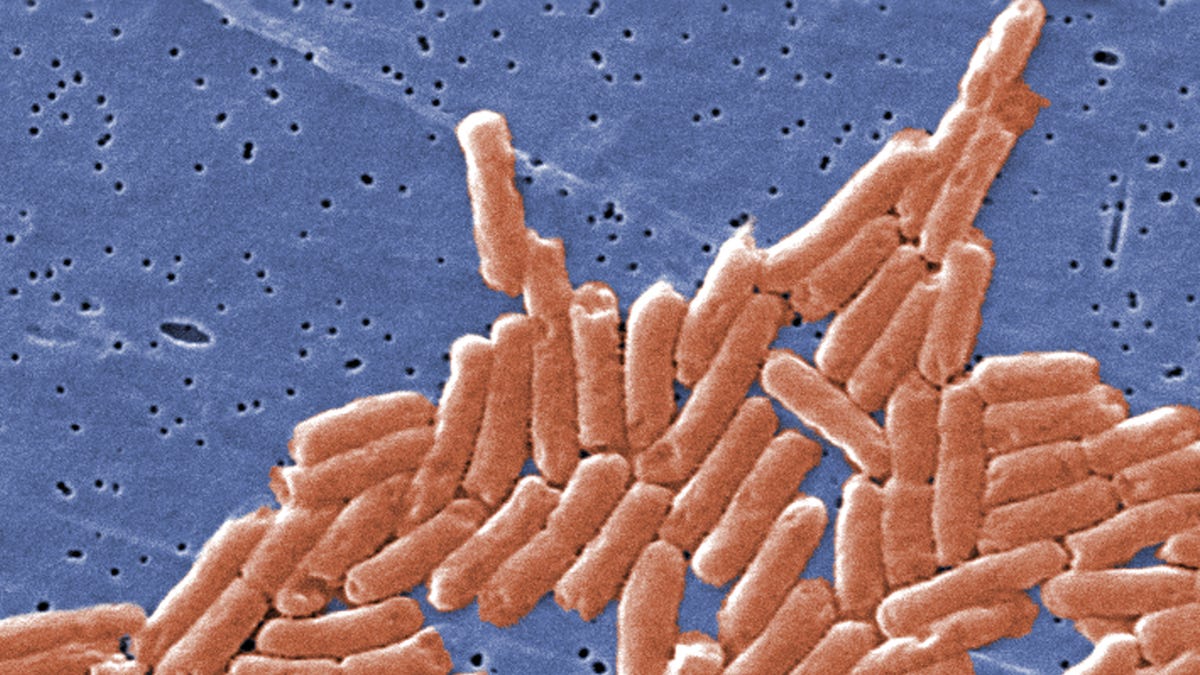
This colorized scanning electron micrograph (SEM) depicts a colony of rod-shaped Salmonella sp. bacteria (CDC)
Packaged caramel-coated apples. Frozen ice cream sandwiches. Fresh peaches and nectarines. Organic chia seed powder.
Products such as these, rarely considered a risk for foodborne illness before, all have been recalled from store shelves in the past year or so. The foods were linked to disease outbreaks in multiple states. Public health officials say the outbreaks are largely because of safety gaps in the way food is processed, manufactured and packaged, as microbes, such as listeria and salmonella, contaminate more foods.
In the more than two decades since E. coli-contaminated hamburgers at Jack in the Box restaurants put foodborne illness at center stage in the news, changes in food-safety practices have reduced some infections linked to meat and spinach. But preliminary 2014 data from the Centers for Disease Control and Prevention show there has been little or no overall reduction in major foodborne infections since 2006. The number of multistate outbreaks continued to rise last year.
Though foodborne illness is often never formally reported, about 48 million Americans, or one in six, get sick each year from food, the CDC estimates, with 128,000 hospitalizations and 3,000 deaths. Last year the CDC’s FoodNet surveillance system, which covers about 15 percent of the population, identified 19,542 cases of infection, nearly 500 more than the previous year.
The growing popularity of packaged foods such as pre-cut fruit and prepared sandwiches has heightened the risk. Contamination can occur between preparation and packaging, or in high-tech processing plants, after heating to destroy harmful bacteria and before packaging.







































